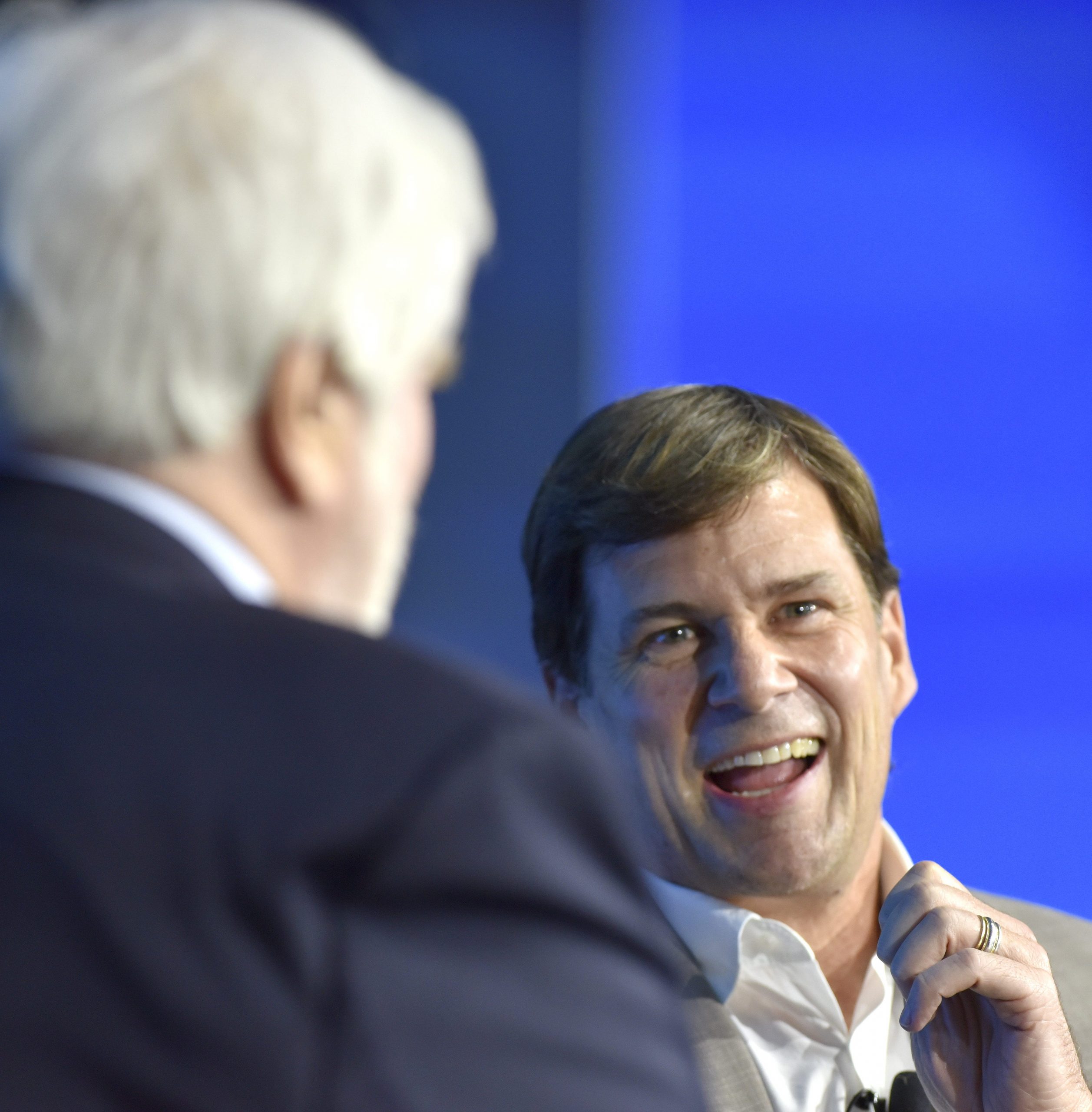Ford Motor Co.’s incoming chief operating officer on Wednesday sought to calm investor concerns, emphasizing his top priority is to ensure the Dearborn automaker’s major vehicle introductions this year go smoothly.
“Everyone at Ford Motor Co. knows the situation we’re in,” said Jim Farley, Ford’s strategy chief, said at a Wolfe Research conference in New York, likening the company’s ongoing transformation to surviving the Great Recession. “I can see it on the face of my colleagues, and it takes me back to about 10 years ago.”
His remarks Wednesday were his first since being named CEO Jim Hackett’s No. 2 and implicitly the top contender to succeed him. The appointment of Farley and the announced retirement of Joe Hinrichs, president of automotive, followed disappointing financial results in 2019 due primarily to the botched launch of the Explorer, Ford’s most popular SUV. And the Blue Oval is introducing several important products soon, including the all-electric Mustang Mach-E SUV, redesigned F-150 pickup and revived off-road Bronco SUV.
Farley said the development of the coronavirus crisis would “handicap” the Blue Oval and affect its financial guidance for the year, though he said it remains too early to determine by how much. The company earlier this month began reopening its nine plants in China, the virus’s epicenter, following an extended Lunar New Year holiday, but ramp up in many businesses and suppliers has been slow and vehicle sales remain significantly down, according to reports.
Ford’s bottom line took a hit last year as new version of the Ford Explorer and Lincoln Aviator came off the line with faulty seats, loose wiring harnesses and digital displays with buggy software. They had to be trucked from Chicago to Flat Rock to make repairs and address quality, causing long delays. Explorer sales dropped 26% year-over-year in 2019.
Additionally, quality issues of older vehicles weighed on the company’s finances, increasing warranty costs by $1.5 billion last year to $5 billion, Farley said. Key to that is development in connectivity and vehicle analytics, he said. The technology presently works to ensure the vehicle is operating correctly, but Farley says there is opportunity to use the software to identify quality issues by adding date and time stamps when problems occur.
“Can you imagine the value creation to use that data to catch quality issues?” Farley said.
Ford also sees financial advantages for use of that technology in its commercial business, which Farley said is a key area for growth. He emphasized Ford is looking to run that division “like a business” over a “collection of nameplates” as it is today.
He pointed to a project in London launched in 2017 that provided plug-in hybrid transit vans to commercial fleets across the city. Ford’s telematics system can provide data on the vehicles’ financial, operational and environmental performance and help save its customers thousands of dollars in energy, Farley said.
“There is a monetized data business that is starting to emerge at Ford,” said Farley, who added that its data analytics team has grown to several thousand and will continue to expand. “This is the signature execution opportunity for Ford and growth opportunity for Ford in the coming years.”
And whether it is how to handle the effects of the coronavirus or how Ford is fixing its execution, it is doing so with a “sense of urgency” to ensure the 117-year-old corporation is agile for the transforming industry.
“Most people come into Ford for more fundamental reasons than just making money,” Farley said. “Ford is a family company. We have to reawaken the purpose of our work.”
bnoble@detroitnews.com
Twitter: @BreanaCNoble
Read or Share this story: https://www.detroitnews.com/story/business/autos/ford/2020/02/26/sense-urgency-ford-says-automakers-new-chief-operating-officer/4879344002/
